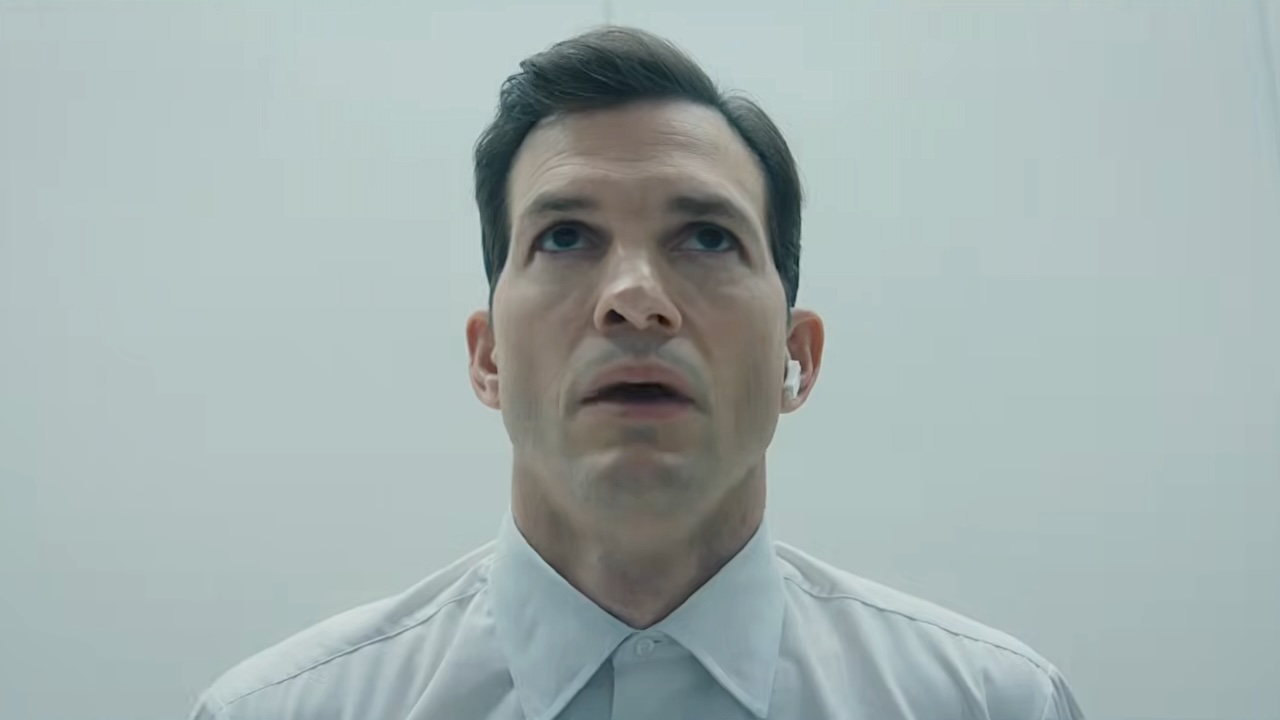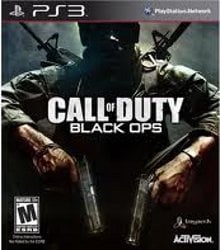
Your Daily Blend of Entertainment News
You are now subscribed
Your newsletter sign-up was successful
Treyarch is commonly identified as "the other studio that makes Call of Duty." The popular opinion is that Infinity Ward makes all the good, innovative ones while Treyarch is the steward, keeping the franchise on course with similar but conservative entries. This is a narrative that Treyarch would love to end and Call of Duty: Black Ops comes close to doing this.
Black Ops is the Treyarch-developed COD game not set in World War II. Instead, it takes place during the Cold War. It's an era of paranoia, espionage and wild conspiracy theories that clearly excites Treyarch. Their World War 2 games felt like History Channel documentaries but Black Ops is much more adventurous. Treyarch plays fast and loose with history in this game and it results in a much better story.
The single-player campaign's main characters, Alex Mason and Jason Hudson, are members of the Studies and Observations Group. The SOG is an American unit performing secret missions in hot spots around the globe: Cuba, Vietnam, and so on. It's a concept that allows a lot of creative freedom. The story does ultimately boil down to a very crazy person trying to kill lots of people with a secret weapon. However, it's told in a very clever way. The game begins with Mason strapped to an interrogation chair. He's being electrocuted and questioned about "the numbers" by unknown people. The SOG's missions are therefore flashbacks. You play therefore not to find out whether or not the crazy guy with the secret weapon will be defeated (he obviously will) but to find out what the hell is going in with Mason and that interrogation. The ultimate explanation isn't that satisfying but the story ultimately served its purpose: to keep us playing.
An engaging story was necessary because it's tempting to stop playing it. The frustrations of World War's single-player make a triumphant return. The A.I. is still pretty shoddy. Enemies will run past your lines and allies will ignore them, choosing instead to follow their programmed route. On numerous occasions, I was killed by an enemy twenty yards behind me that no one had bothered to kill.
It's easy to lose track of enemies because of the other old annoyance: infinitely respawning enemies. In many parts of the game, enemies will keep streaming out until you move forward. Killing an enemy is supposed to be gratifying but it really isn't if they're immediately replaced by an identical enemy who hops behind the same cover seconds later. The infinite respawns are just confusing, too. They don't happen everywhere in the game so it might take five minutes of picking off respawning enemies before you realize "oh, I'm in one of THOSE parts" and move forward. Also, your allies might not always move forward with you - who's leading and who's following, by the way? - so you'll get killed often while attempting to storm enemy lines.
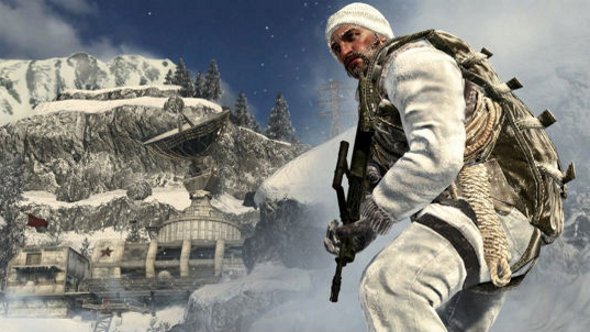
The campaign has its usual, entertaining blend of gunfights and rail shooting. Like Modern Warfare 2, Black Ops also has some driving sequences as well. This game offers up a little more variety on that front, though, with players controlling attack helicopters and assault boats. You’re driving and shooting at the same time on these occasions and the controls (a combination of dual analog sticks and shoulder buttons) are smooth. They’re not really “deep” experiences, though. They feel more like eye candy than anything. You’re just spamming your missile/machine gun buttons and waving them around while the world blows up around you.
Treyarch has good ideas on how to make the single-player experience feel new but fails to capitalize on them. For one mission, you play a spy plane pilot watching a snowy mountainside. You direct a commando team on the ground by clicking destination points, as though they were units in a real-time strategy game. You move them off the road when a truck is coming by, or tell them to hide when an enemy patrol is near. As soon as you learn how to move the units and tell them to hide, though, this sequence is over.
Your Daily Blend of Entertainment News
Another example: Mason and Woods, a fellow soldier, are captured by the Vietnamese and forced to play Russian roulette. Russian roulette is a game where one bullet is placed in a revolver and the participants take turns putting the gun to their head and pulling the trigger. Woods goes first and gets an empty chamber. On Mason’s turn, he picks up the gun and shoots one of his captors before using him as a human shield. How did he know that the next chamber had a bullet, though? More to the point: couldn’t the player have been engaged in this a bit more? What if we had to study the gun and figure out which chamber the bullet was in, all the while still being forced to play Russian roulette? There are lots of little missed opportunities like this in the campaign.
Black Ops places less of an emphasis on co-op than the last two COD games. Modern Warfare 2’s Spec Ops mode and World at War’s four player co-op are nowhere to be seen. BO does, however, bring back the latter’s zombie co-op. Four players work together to fend off waves of zombies. Killing zombies and repairing barricades earns you money to purchase new weapons and unlock new areas of the map. This mode is a fun diversion but hasn’t changed much from its WaW incarnation. The only notable addition on this front is Dead Ops Arcade, a top-down version of the mode that feels similar to Smash TV. You collect power-ups and battle a horde of zombies lorded over by a giant ape. The fact that Treyarch threw their energy into this rather than improvements for the normal zombie co-op suggests that they view all this undead business as an Easter egg rather than a pillar of the game. Could we at least earn XP for playing it? Pretty please?
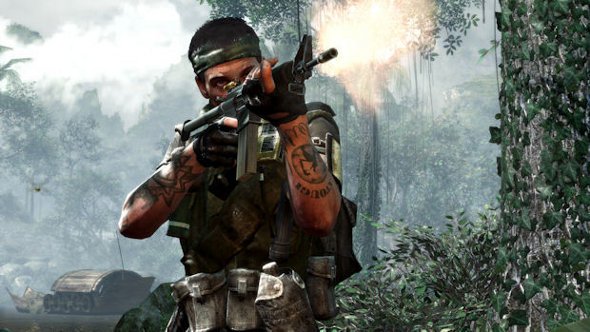
The competitive multiplayer for COD has been largely the same since Call of Duty 4. As you’d expect, Black Ops new weapons, equipment, maps, killstreak rewards, and perks. What’s surprising, though, is that BO also makes a big structural change to the multiplayer. In previous games, players earned XP through multiplayer matches and received new weapons, perks, and equipment with each level. That’s only one part of BO’s progression system, though. Your level does not automatically allow you to use a new weapon; instead, it gives you the right to purchase it using COD Points. COD Points must be used to buy any unlockable (even smaller things like emblems or weapon attachments).
Being forced to deliberately spend points to unlock items means that there’s less opportunity to experiment. I also dislike having to pay for weapon attachments for each new gun; attachments used to be tied to weapon-specific Challenges, which seemed to make more sense. Still, I stuck with maybe three or four weapons in MW2 so being forced to do the same thing in this game isn’t that big of a deal. By now, experienced COD players know exactly what guns and perks they want. The system is a bit less newbie-friendly, but a new Combat Training mode will ease them in. It allows them to play matches against A.I. bots and rack up XP/COD Points for unlockables. This progression doesn’t carry over to normal multiplayer but it allows players to become familiar with some of the weapons and the process of customizing their load-out.
The upside to COD Points is that the need for them opens up new gameplay possibilities. While you earn a set amount of COD Points with each level, it probably won’t be enough for you to buy everything you want. You’ll have to seek other means to supplement your income. One way is through Contracts. Contracts are essentially personal gambles on your performance. You might spend 15 COD Points to buy a Contract that says you’ll get 25 kills with a certain weapon. If you complete the Contract within the allotted time (the time you’re alive, rather than total play-time), you’ll win more COD Points but if not, you lose the Points you initially spent. It gives you another way to challenge yourself, in addition to the XP-based Challenges that return from previous games.
Wager Matches are the other way to earn COD Points. You spend COD Points to play a match, and win a reward if you’re one of the top 3 players at the end. Rather than recycle the standard multiplayer modes, Treyarch adds four new game types that are exclusive to Wager. In “One in the Chamber,” each player gets a pistol with one bullet in it. You can only get an additional bullet by killing another player. In “Sticks and Stones,” players get crossbows, ballistic knives, and tomahawks. Any player killed with a tomahawk gets their score reset. “Gun Game” gives players progressively stronger weapons with each kill. “Sharpshooter” gives all players the same random weapon, which cycles every minute or so. They’re fast-paced, wacky alternatives to the straightforward modes that define the normal COD multiplayer experience.
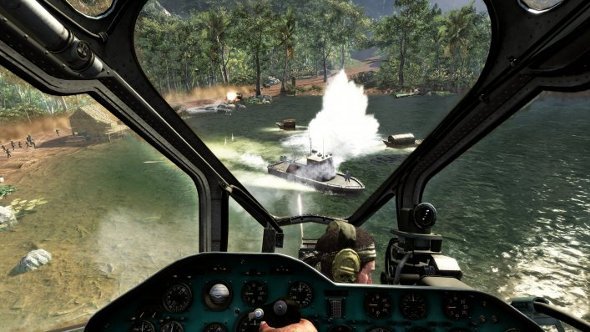
These Wager Match modes are actually the only new modes for the competitive multiplayer. Some might wonder why, then, these modes can’t also be played in the normal, XP-based multiplayer. I suppose it would’ve split the people interested in those game types in half and made it harder for them to find matches. Also, disconnecting the Wager Match modes from XP progression means that everyone’s on a level playing field and therefore you’re gambling on a level playing field. That being said, it’s a shame that there aren’t any new “normal” modes because that’s where people will spend most of their time.
Though Treyarch’s previous COD games felt short of Infinity Ward’s productions, they’ve narrowed the gap considerably with Black Ops. I’m not sure if it’s a better game than Modern Warfare 2 but it’s certainly debatable thanks to the ambitious single-player story and innovative Wager Matches. The Call of Duty series is known for small, incremental changes but with Black Ops, Treyarch showed they’re willing to push the envelope a bit. They may not get as many awards as Infinity Ward did for MW2 but they’ve certainly earned some respect.
Players: 1-16
Platform(s): PS3 (reviewed), Xbox 360, PC
Developer: Treyarch
Publisher: Activision
ESRB: Mature
Rating:

Staff Writer at CinemaBlend.

